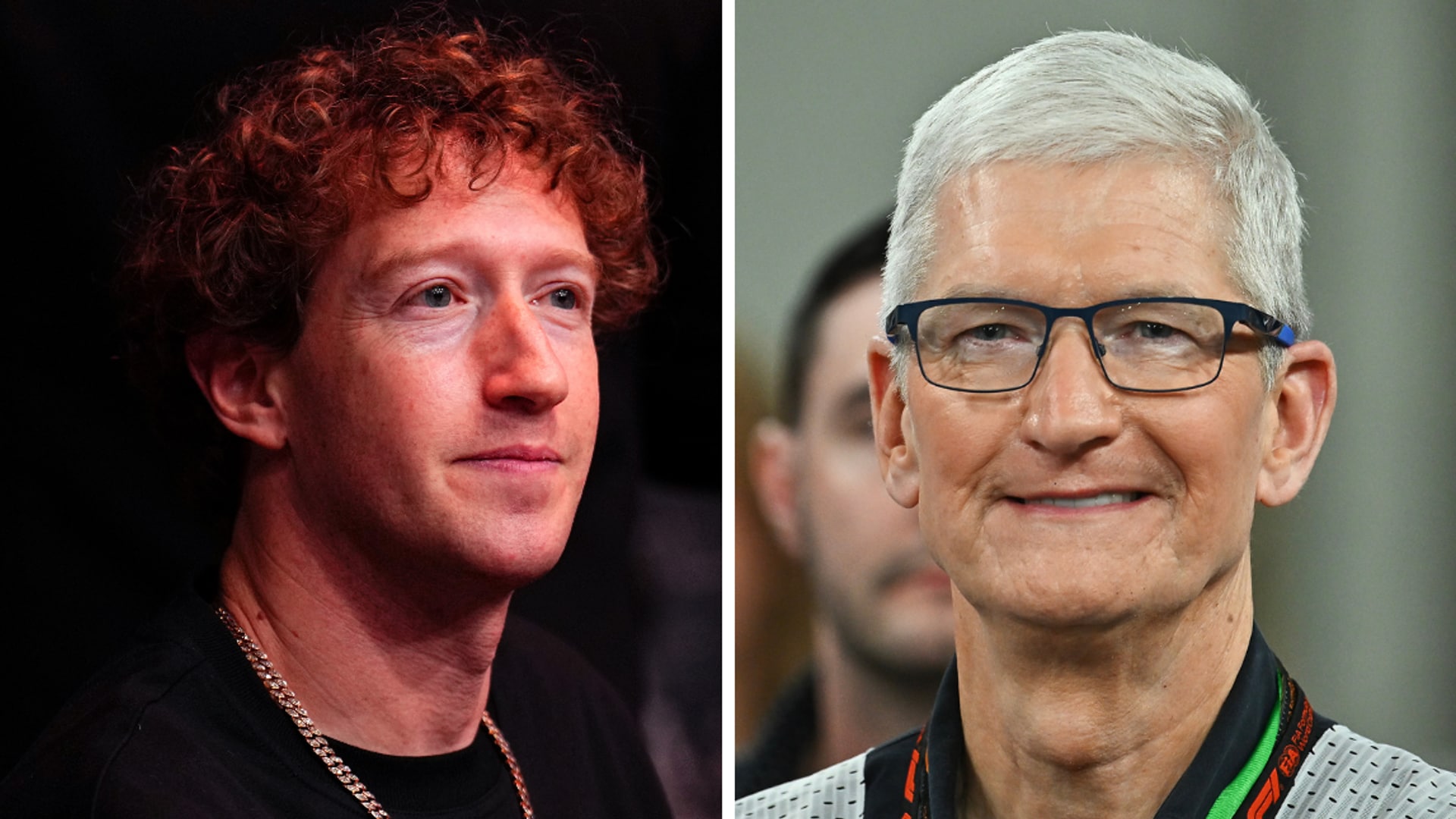Two of the leading voices in tech have clashing ideas of the future and the way in which technology will impact our lives.
Mark Zuckerberg, the CEO of Meta, joins a legion of tech titans in supporting Artificial Intelligence (AI) and the freedoms of various third-party apps in today's internet. He's been exploring new technologies in recent years, including smartglasses, claiming that these could replace smartphones in the future. Tim Cook, the CEO of Apple, has been slower to embrace AI and is focused on the iPhone and its future, something that Zuckerberg has criticized continuously. Cook has also shut down some of Facebook's complaints, leaving Zuckerberg airing his criticism about Apple in different forums.
Zuckerberg's thoughts on the iPhone
Zuckerberg has been critical of Apple repeatedly, criticizing the company and its lack of innovation since Steve Jobs' departure.
"On the one hand, [the iPhone has] been great, because now pretty much everyone in the world has a phone, and that's kind of what enables pretty amazing things," he said on "The Joe Rogan Experience."
"But on the other hand…they have used that platform to put in place a lot of rules that I think feel arbitrary and [I] feel like they haven't really invented anything great in a while. It's like Steve Jobs invented the iPhone, and now they're just kind of sitting on it 20 years later."
Cook stepped in as CEO of Apple in 2011, following Jobs' death, playing a pivotal role in catapulting the company to its $3 million valuation.
Meta is 'the opposite of Apple'
In an appearance on the "Acquired" podcast, Zuckerberg compared Meta to Apple. “I think in a lot of ways we’re like the opposite of Apple,” he said.
“Clearly, their stuff has worked really well, too. They take this approach that’s like, ‘We’re going to take a long time, we’re going to polish it, we’re going to put it out,’ and maybe for the stuff that they’re doing that works, maybe that just fits with their culture.”
He said that in the case of Meta, they prefer to put out more products and software, even if they make mistakes, that way they have a hand in influencing the future of technology. “If you want to wait until you get praised all the time, you’re missing a bunch of the time when you could’ve learned a bunch of useful stuff and then incorporated that into the next version you’re going to ship," he said.
Apple and Meta, competitors?
In the same podcast, Zuckerberg claimed that Apple is one of Meta's biggest competitors, something that Cook shut down in previous instances.
“Oh, I think that we compete in some things,” said Cook in an interview with The New York Times in 2021. “But no, if I may ask who our biggest competitors are, they would not be listed. We’re not in the social networking business.”
Over the years, Cook has rarely discussed Zuckerberg, instead focusing on his own company.
It all started with privacy
Cook and Zuckerberg's feud dates back to a few years ago, when the two stood on opposing ends when it comes to the users' privacy. Apple argued that users should have more power and control over their data, making third-party tracking more transparent, sparking anger from Facebook, and inspiring a one-page ad in The Wall Street Journal where Facebook said that it was standing up to Apple.
In the same interview with The New York Times, Cook said that he wasn't focused on Facebook, claiming that Apple's privacy evolution was “not aimed at a company, it’s aimed at a principle.”
